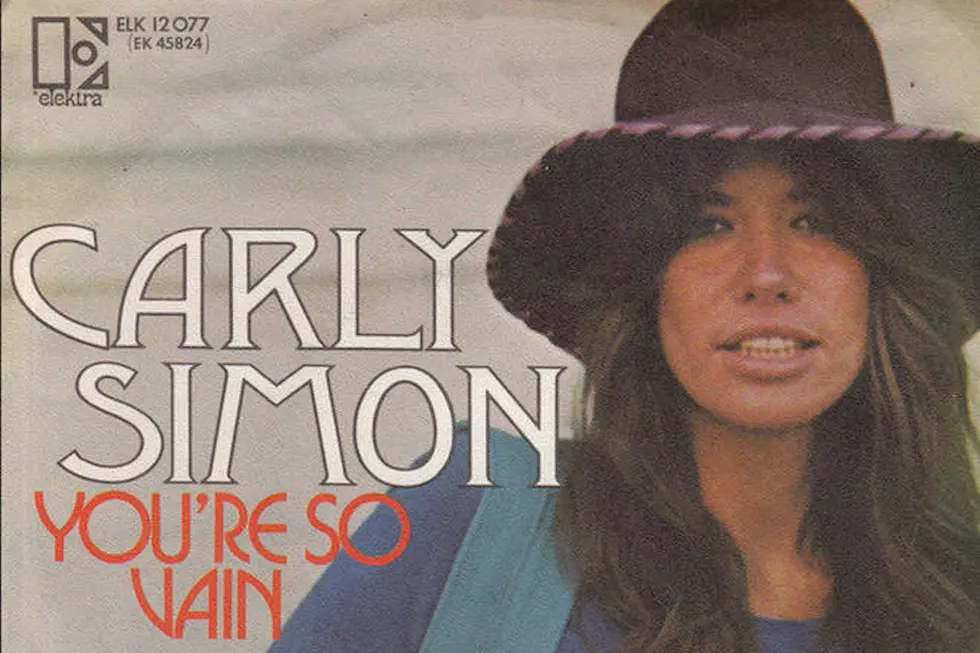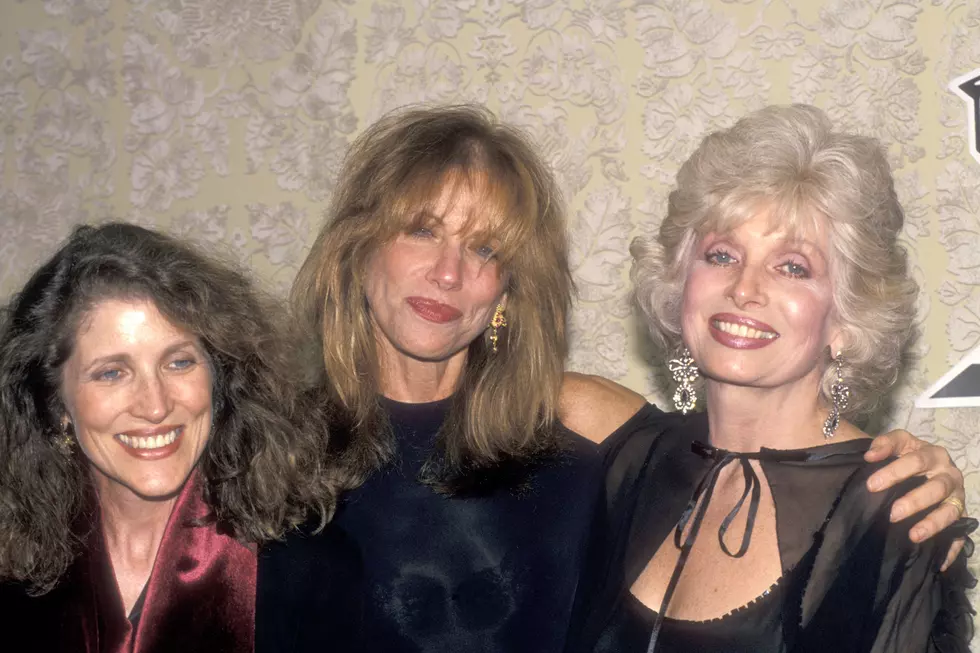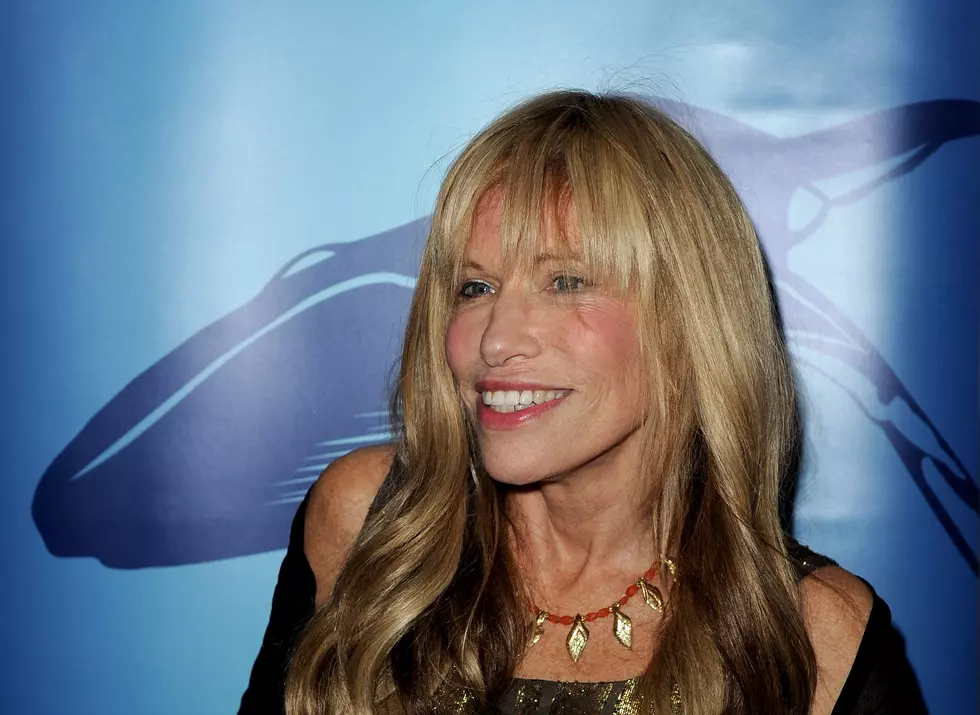
50 Years Ago: Carly Simon Begins a Debate With ‘You’re So Vain’
At some point in 1971, Carly Simon attended a party in Los Angeles that would change the trajectory of her career. That evening, a man she knew walked in with a palpable air of pompousness. Simon instantly found the subject for her new song, which she had been working on. "I said to myself, 'This is exactly the person that 'You’re so vain, I bet you think this song is about you' is about!" she recalled in 2006.
"I envisioned him looking in the mirror and the scarf twirling, and the imaginary gavotte, and all the women wanting to be his partner."
The identity of that man has never been revealed, and since the song's release in November 1972, it's driven music fans mad with speculation. Many famous names have been suggested over the years, including Mick Jagger, David Bowie, Warren Beatty, James Taylor, David Cassidy, Cat Stevens, Dan Armstrong, David Geffen and Jack Nicholson.
Without intending to, Simon single-handedly launched one of music's hottest debates. "You're So Vain" arrived as the lead single from Simon's third album, No Secrets, which was a misleading title. There was one huge secret in the LP's best song.
Simon again mentioned the party in 2000, describing how the melody of "You're So Vain" was one she had been using for a song titled "Bless You Ben." "It never went anywhere, I could never fall in love with it," Simon said in an interview with Charlie Rose. "And then I was at a party and somebody walked in, and my friend said to me, 'Doesn't he look like he's just walked onto a yacht?' So, I thought to myself: Hmmm, let me write that in my notebook. And then one day, when I was playing 'Bless You Ben' on the piano, I substituted 'You walked into the party like you were walking onto a yacht' and the exchange was equal. And it felt natural and it felt good, and then I could get into that man, I knew who I was talking about."
Later, Simon was working on backing vocals for the song with Harry Nilsson, when Jagger happened to call the studio. She enlisted him on the fly. "So Mick and Harry and I stood around the mic singing 'You're So Vain,' and Harry was such a gentleman," Simon recalled in 1995. "He knew the chemistry was between me and Mick. In terms of the singing, so he sort of bowed out saying, 'The two of you have a real blend – you should do it yourselves.'"
Listen to Carly Simon's 'You're So Vain'
What Nilsson described as "chemistry" Simon described in her 2015 memoir, Boys in the Trees, as "raw electricity." The attraction between herself and Jagger, she said, was mutual and so intense that "having sex would have actually cooled things off." Simon never has divulged what went down with the Rolling Stones singer. In her book, she detailed the story of the night before her marriage to Taylor in 1972, when Jagger's wife, Bianca, called Taylor to warn him that his bride was having an affair with her husband. Taylor, one of the few people whom Simon has firmly stated "You're So Vain" is not about, didn't believe the rumor and married Simon anyway. "If Mick could have his way, it would be Romeo and Juliet tragic," Simon cryptically wrote in the book. "We couldn’t have each other." Jagger was uncredited for his vocal support in "You're So Vain," but that didn't stop his name from being included in the list of possible song subjects.
"You're So Vain" was a phenomenal success for Simon when it was released, reaching the No. 1 spot on the Billboard Hot 100 and earning three Grammy nominations: Record of the Year, Song of the Year and Best Female Pop Vocal Performance. None of it, though, compared to the way audiences hungered to know whom Simon had written the song about.
Hints have trickled in over the years, like in 2003 when Simon offered the secret as a prize at an auction event in Martha's Vineyard. The winner, NBC Sports executive Dick Ebersol, paid $50,000 for Simon to tell him the subject of the song. He was allowed to tell only one other person, though both had to sign paperwork agreeing to never tell anyone else. Not long afterward, Katie Couric attempted to pry it out of Ebersol while he was a guest on the Today show, but the only information he gave was that the person's name contained the letter "E." By 2004, Simon had given out three total letters of the song's subject: "E," "A" and "R." They've done little to narrow the roster.
In 2009, Simon dug even deeper into the secret, releasing a new recording of the song in which she claimed she'd hidden the subject's name. (It appeared on her 23rd album, Never Been Gone, which featured 10 new versions of her older songs.) Listeners swore they could hear the name "David," a possible allusion to label executive Geffen, but at the time of the song's writing, Simon had yet to meet him. "I said 'Ovid,' both front and backward together on the CD, and it came out sounding like 'David' to some, I guess," Simon later clarified, referencing the ancient Roman poet whose best-known work, Metamorphoses, describes characters who undergo various transformations.
Watch Carly Simon Perform 'You're So Vain' in 1987
One possible subject came right out and assumed responsibility: "Let's be honest," Warren Beatty once said. "That song is about me." But in 2015, Simon addressed what most had already started to believe: The song was about more than one man. "Warren thinks the whole thing is about him!" she told People, admitting that the second verse of "You're So Vain" was about Beatty.
Two years later, Simon unveiled a "lost" fourth verse to the song: "A friend of yours revealed to me / That you'd loved me all the time / You kept it secret from your wives / You believed it was no crime." The lyrics didn't offer any new clues, and Simon further clouded things when she told the BBC that she'd given People the information about the second verse as part of a deal. "It was my [book] publisher who called up and said, 'People magazine will put you on the cover if you tell who 'You're So Vain' is about or just give one verse up.'" she said. "And so I, therefore, decided to give a little bit away. Now, that doesn't mean that the other two verses aren't also about Warren. It just means that the second one is."
Simon still couldn't believe people's fascination with the song after all that time. "Why do they want to know?” she said in 2015. “It’s so crazy!” Simon had written the song as a folksy ballad, which her producer, Richard Perry, insisted she turn into something more rock-oriented. "I didn't take the song as seriously as all that," she later said in an interview with Uncut. "It wasn't vengeance; it wasn't Anna Karenina. It was, 'From this point of view, you don't necessarily look as good as you think you look.' There's not an iota of hate in it. There may be much more of an iota of feeling hurt or rejected. ... I was definitely a romantic and my hopes were dashed. That led to the song."
"You're So Vain," turned out to have a much broader impact, not only in its own time but in the decades since its November 1972 release. A critical examination of an egotistical lover, the song became part of the blueprint for female singer-songwriters interested in writing songs about their lives. It didn't matter whom the song was about in the long run. As Simon's manager put it to the BBC, "The answer wasn't as important as the game." "You're So Vain" helped define Simon's style as a songwriter and also served as inspiration for women who were tired of beating around the bush.
Watch Carly Simon Perform 'You're So Vain' With Taylor Swift
"I've felt the ripples of that blaring public curiosity affect my own lyrics," Taylor Swift said in 2015. (Swift performed the song alongside Simon at a concert in 2013, after which Simon reportedly told Swift the name of the subject.) "I was a poetry-obsessed preteen the first time I heard that incredibly genius kiss-off: 'You're so vain, you probably think this song is about you.' After hearing that, it was like a key had just unlocked this forbidden area of storytelling for me. You can say exactly what you feel, even if it’s bitter and brazen!"
In 2015, Simon stated that she didn't plan on publicly revealing any other names, "at least until they know it's about them." The implication was that they were still alive. She added that names may come out in other ways. "Probably, if we were sitting over at dinner and I said, 'Remember that time you walked into the party?'"
Top 40 Singer-songwriter Albums
More From KOOL 101.7










